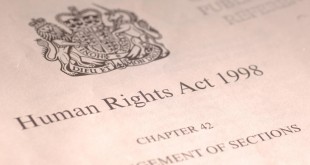Le Petit Juriste had the great privilege to interview Lady Hale of Richmond, the first and only woman in the Supreme Court of the United Kingdom. Le Petit Juriste: Lady Hale, let me introduce you to our French readers: you are the Baroness Hale of Richmond, the Deputy President of the United Kingdom Supreme Court, the first and only …
Read More »English law
La modernisation de la Chambre des Lords
« La Chambre des Lords constitue une curiosité anachronique aujourd’hui unique au monde, une chambre médiévale que l’on peut sans doute qualifier d’anomalie constitutionnelle« [1]. La Chambre des Lords (House of Lords) est, avec la Chambre des Communes (House of Commons), l’une des deux Chambres du Parlement britannique, qui comprend aussi la Couronne (Crown). Le bicaméralisme britannique est le fruit d’une longue …
Read More »Erin Andrew’s win for women’s rights in the United States
If March 8th is the International Day for Women’s Right, March 7th, 2016 was the day which pleaded in favor of women’s rights in the USA. The now famous Erin Andrews case in the USA concerns issues of privacy on the Internet, especially the videotaping, so-called “revenge porn”. Erin Andrews, 37, a famous sportscaster on Fox Sports, was illegally filmed through …
Read More »Consent to treatment : an inviolable right?
A fundamental cornerstone of contemporary medical law ethics is the acquirement of a patient’s consent before proceeding onto any treatment. Paternalistic approaches where the doctor would impose treatment on a patient are no longer acceptable in our modern-day European human rights culture. Indeed, it can readily be argued that operating on a competent patient without his consent would be …
Read More »Online Gambling: Should the EU let the chips fall where they may?
The European Union gambling market is estimated at around € 84.9 billion and grows at an annual rate of around 3%.[1] It has become evident that online gambling is particularly popular with around 6.8 million consumers in the European Union[2]. In 2012, online gambling services represented more than 12% of the EU’s gambling market with annual revenues of over €10 …
Read More »The French class action and the English group litigation order: two collective actions restoring equality of arms between victims
Historians place the origin of the collective action in the 17th century in England, referring to the Bill of Peace. This procedure allowed several individuals to solve common issues in the context of a single action brought before the Courts of Chancery, who believed in Equity, and not the rules derived from Common Law. In these proceedings, the applicants should …
Read More »«Common law» ou droit civil, est-ce que cela importe?
Il existe quatre traditions juridiques importantes dans le monde : le droit romano-civiliste, la Common law, le droit coutumier et le droit religieux. Un exemple pertinent qui vient à l’esprit et qui illustre la différence entre Common law et droit civil est indubitablement celui de la France et du Royaume-Uni. La juxtaposition de Common law et de droit civil repose …
Read More »The unresolved Cyprus problem
Cyprus, a European Union member and a recently discovered oil-rich resort, is plagued with a lingering issue: an unrecognised Turkish-Cypriot North. The Cyprus problem, also known as the Cyprus issue has become the symbol of a complex international conflict. The Cyprus crisis that unfolded in the summer of 1974 serves as daily reminder of a chronic forty-year-old wound. The unresolved …
Read More »The role of national parliaments in the European Union: a case for reform?
The role of national parliaments in the European Union is one that is well established in European Union Law. A declaration annexed to the Maastricht Treaty inspired greater contribution from national parliaments through encouraging the exchange of information between them and the European Parliament and ensuring that proposals for legislation would be made in ‘good time for information and possible …
Read More »Should the Human Rights Act 1998 be repealed in favour of a ‘British Bill of Rights’?
The role of the Human Rights Act of 1998 on the protection of fundamental rights and freedoms in the United Kingdom is one that is well established in UK law. Once seen as the very touchstone of the incorporation of human rights in the UK, the Human Rights Act was intended to ‘bring rights home’[1], incorporating the European Convention on …
Read More » Le petit juriste Site de la revue d'actualité juridique
Le petit juriste Site de la revue d'actualité juridique












